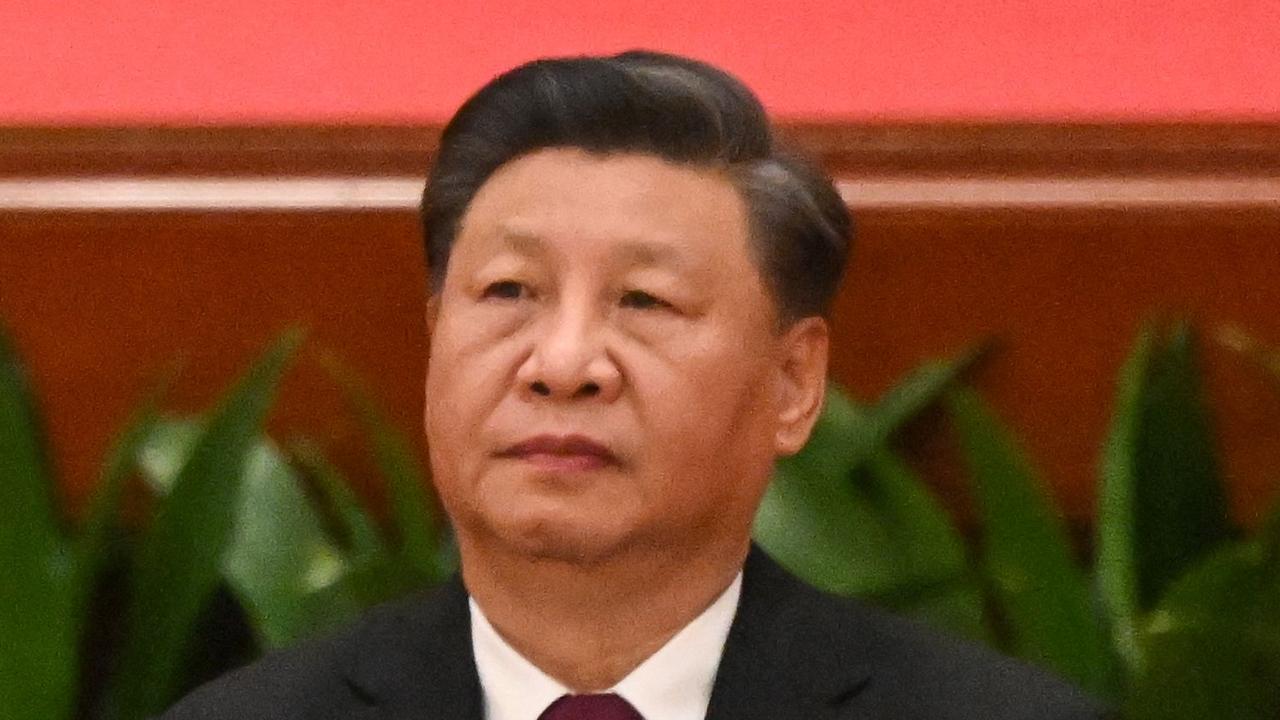West still falling for China’s false words


A New York meeting between Foreign Minister Penny Wong and Chinese Foreign Minister Wang Yi provided the opportunity to reset bilateral relations. It was reported in the Australian and Chinese media as a positive exchange. Wong reiterated Labor’s aim to stabilise the relationship while Wang said it was ready to resolve differences.
The CCP-controlled Global Times is renowned for jackboot rhetoric but moderated its tone to report the meeting had been constructive. The Australian media, too, welcomed an apparent break in hostilities. Yet nothing of substance has changed. The CCP is unreformed and unrepentant. It denies its role in suppressing information about the origins of Covid-19. It has not apologised for the CCP policies that resulted in the deaths of more than one million Tibetan and 50 million Chinese people in the 20th century.
The 21st-century CCP still jails dissidents and publicly shames dissenters from the party line. During a period of pro-democracy protests in Hong Kong, Chinese President Xi Jinping warned: “Anyone who attempts to split any region from China will perish, with their bodies smashed and bones ground to powder.” More recently, the CCP has threatened to take democratic Taiwan by force. It has herded the ethnic minority Uighur population into gulags. It has praised the Taliban in Afghanistan, describing the terrorist regime as “a pivotal military and political force”. It entered into a “no limits” alliance with Russia only a few weeks before Vladimir Putin’s army invaded Ukraine. The CCP does deals with despots and fuels corruption by wilfully ignoring the human rights abuses of authoritarian regimes to secure favourable trade terms that build its wealth and power.
The Chinese government has taken a more muscular approach to international affairs after consolidating political power in the figure of President Xi. It took some time for the reality to dawn that China’s political elite were not inclined to permit liberal market reforms to give rise to a liberal democratic state. In the intervening years, many believed the communist state was on a path to democracy. A new expose reveals how the CCP duped key figures to gain influence in the highest echelons of Western power, including in Australia.
Australian Strategic Policy Institute senior analyst Alex Joske wrote about China’s covert operations in The Weekend Australian. He claims former Labor PM Bob Hawke was used covertly to restore the its public image after the Tiananmen Square massacre. As prime minister, Hawke unreservedly condemned the brutal slaughter of Chinese youth protesters. His speech on the massacre was held in shaking hands and delivered through tears. He expressed the raw anger and grief that resonated with a world reeling in shock at the extent of CCP brutality. But, according to Joske’s analysis, it did not stop him being duped by the CCP in later years.
Part of the reason the CCP is so successful in covert operations is broad ignorance about its strategy. The International Republican Institute has compiled and analysed case studies that illustrate the methods honed by the CCP to influence the political elite and public opinion in Europe, Africa and South America as well as in Solomon Islands. Traditionally, the CCP has undermined states through soft-power influence. The most comprehensive analysis of the soft-power strategy in Australia was presented in Clive Hamilton’s book, Silent Invasion. The IRI has observed that while the trade in goods and services remains the primary conduit for CCP influence, infrastructure financing through the Belt and Road Initiative has amplified its power significantly. The effect has been a weakening of democratic institutions and norms in some recipient countries. The IRI writes: “Any path back to the centre of the world stage for Xi’s CCP will not be straight. Nevertheless … the party’s determination and allocation of resources to realise its goals remain formidable and should not be underestimated.”
In June, Solomon Islands Prime Minister Manasseh Sogavare reassured Australia his government’s security deal with China would not result in a Chinese base on the island. Anthony Albanese accepted Sogavare’s pledge in good faith, saying “You’ve got to deal with people at face value.” If the government were really dealing with Sogavare at face value, it would see red.
Journalists on the Solomon Islands have noticed that since signing the security agreement with China, their government is adopting its norms. Like the CCP, Sogavare appears to be increasing state censorship of the media. The ABC reported on local fears that he is moving to restrict media freedom and obstruct impartial coverage of state affairs. After the ABC aired a Four Corners documentary about the influence of Chinese-owned companies in the Solomon Islands, the Sogavare government called the Australian High Commissioner to complain.
The US has moved to blunt China’s authoritarian influence with a new US-Pacific Partnership. US President Joe Biden announced the agreement with leaders of the Cook Islands, Federated States of Micronesia, Fiji, French Polynesia, Nauru, New Caledonia, Palau, Papua New Guinea, Republic of the Marshall Islands, Samoa, Solomon Islands, Tonga, Tuvalu, Vanuatu.
Wang Yi said his government was ready to meet ours “halfway”. Before taking Wang at face value, we had better ask: “Halfway between what?”



The Labor government has thrown a lifeline to China by offering to stabilise bilateral relations. However, there is no evidence the Chinese Communist Party has changed the behaviours that led to heightened geopolitical tension with democratic states. Rather, its efforts to challenge the US for global supremacy and subvert the liberal democratic order have intensified over time. In such a context, one might expect the Australian government to regard the offer of detente as tactical diversion. Yet it seems willing to entertain the idea that the CCP is capable of reform.